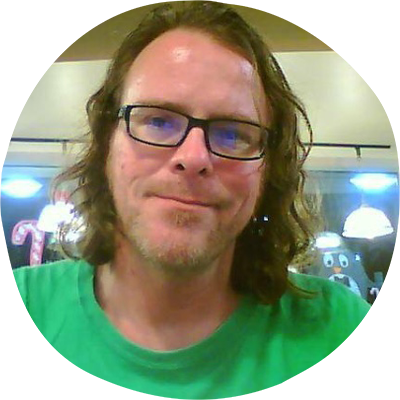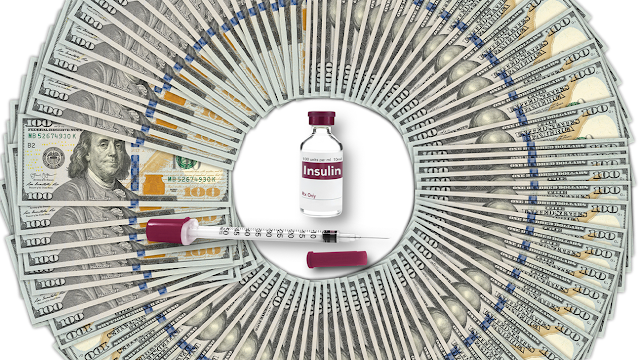Insulin Availability for Those Who Need It Most (Remembering Shane Patrick Boyle)
This is a story we wish didn't need to be told.
By now, no one should be surprised by the high cost of insulin and how broken the drug-pricing system is in this country.
In late 2016, we shared a story about the human cost of unaffordable insulin. Fortunately, the woman highlighted in that story was able to find help, so there was a positive ending.
Sadly, that's not always the case.
Some of you may be aware of the story of Shane Patrick Boyle, who died in mid-March 2017 as a result of not being able to afford or obtain insulin. He isn't the first, and won't be the last, and the facts that it's 2017 and we live in one of the wealthiest countries in the world makes this even more of an outrage.
It's unacceptable, and something has to change!
Remembering Shane Patrick Boyle

We never met Shane, nor did we connect with him online in any way.
But he was one of us. A member of our Diabetes Community, someone who had lived with type 1 for many years and just like us, relied on insulin to stay alive.
From accounts of those who knew him, inside and beyond our D-Community, Shane was an incredibly kind and gentle man with a huge, giving heart. He was a gifted creative writer and graphic artist who in 1993 founded the first unofficial ZineFest Houston event aimed at the do-it-yourselfers in the comics and artistic community.
As we understand it and from what we've seen shared in the DOC, Shane had recently moved back home from Texas to Arkansas to take care of his sick mom, Judith (who died on March 11). As a result of the move, Shane apparently lost access to healthcare and prescription coverage. He was also between doctors and in need of insulin… apparently, he was waiting for his Affordable Care Act (ACA) coverage to be approved and was stretching out his insulin until he had enough money to see a doctor to prescribe more insulin, and purchase it.
In early March, Shane set up a GoFundMe crowdfunding page in order to raise $750 for a month’s worth of insulin (!) to get him by. Tragically, that didn't materialize in time to save him.
Our community lost Shane on March 18, and according to his GoFundMePage (which has now been revised to provide for funeral expenses for both Shane and his mom), "Shane died because he was trying to stretch out his life-saving insulin to make it last longer."
Now, to reiterate: We don't know Shane, and we don't know exactly what happened. Maybe he did try to get some insulin through existing resources, but just couldn't manage to do so. And to remind you, he's not the first to find himself in this predicament of not being able get insulin when it was needed.
Honoring Kevin Houdeshelll

Remember the 30-something in Ohio in who died due to no emergency access to insulin?
Kevin died in January 2014 after not being able to get an emergency prescription at a local pharmacy for insulin on New Year's Eve. He died from high blood sugars leading to DKA. Kevin's death sparked an Ohio law change that is carrying over to other states, prompting revisions to how pharmacies are able to dole out prescription insulin in case of emergency. While his story is more about access than specific to affordability, it illustrates the insulin crisis happening in the USA.
There is a national conversation happening picking up steam about why insulin prices have become so very unaffordable -- not to mention Congressional action, federal legislation and class-action lawsuits -- all working to tackle this big issue. And obviously, outside the US and in developing countries the access issue is often even more dire.
But in the US right here and now, there are people literally trying to figure out where their next life-sustaining insulin dose is going to come from.
That's why it is so incredibly important to spread the word about the options that do exist.
Insulin Access Emergency Resources
Some of those resources available to those who might need it most include -
Samples of Insulin: Doctors offices and health clinics (particularly those free community clinics) often keep small samples of insulin on hand -- whether it be vial or pen -- to give to patients on a sample or emergency basis. Sometimes, if a patient is interested in trying out a different insulin, running out of their particular insulin, or can't get immediate access to a new prescription, this can be a stop-gap until they can afford or obtain a full prescription.

Older, Lower-Cost Insulin: While it's certainly not as effective as modern fast-acting or basal insulins like Humalog, Novolog, Lantus or Levemir, there are older varieties of insulin available at both Walgreens and CVS. For many years under the brand name ReliOn, Walgreens has sold this insulin for a much more affordable price -- currently about $25. This has been a contract with both Lilly and Novo insulin over the years, but it's currently Novo R/N and 70/30 insulin brands sold under the ReliOn name. Most recently, CVS began a ReducedRx program, and in May 2017 will start selling Novo's R, N and 70/30 for the discounted cost of $10. While this may not be great insulin by today's standards, and it won't be compatible with those hoping to use insurance Rx coverage, it certainly can be used for cash buys in an emergency situation when there's no other alternative.
Savings/Discount Programs: As controversial as these may be, because insurance deductibles may not apply and because those on Medicare/Medicaid and government insurance may not be eligible, these are also options for some people in trouble. In early 2017, Lilly started working with BlinkHealth to develop a discount program offering up to 40% off its brand of insulins at participating retail pharmacies. Sanofi also tells they're finalizing changes on their own expanded discount program, and details will be announced soon. Each of the three big insulin manufacturers offer their own Patient Assistance Program (PAP):
- Lilly Cares: (800) 545-6962
- Novo's Cornerstones 4 Care: (866) 441-4190
- Sanofi's Patient Assistance Connection: (888) 847-4877
These programs may not be an answer to the bigger pricing crisis, and there are certainly opinions that these PAPs cost more in the long-run overall, but they can be a life-saving option in a time of need. We must make sure PWDs and doctors know about them.
Hospital ERs: OK, this may be a last-ditch option. The potential high cost of ER visits and hospital care is certainly a factor in all of this, but if someone is looking at a life or death choice, why wouldn't this be an alternative?
These are some of the more official resources our D-Community can turn to, but another less visible avenue is the resource-sharing going on between patients themselves.
Diabetes Community paying it forward
The reality is that members of our D-Community are not afraid -- and increasingly motivated -- to help each other, myself included.
As i've noted before, in order to be sure I was giving away prescription medications to strangers safely and responsibly, I choose to help by donating my excess insulin vials and pens to my endo's office and nearby clinics, to let them distribute to patients as they see fit.
If you Google "pay it forward diabetes," you will find a lot of forum discussion about this, where people are connecting individually to help each other.
You'll also quickly run into the Type 1 Diabetic's Pay It Forward group on Facebook founded about eight years ago by Bill Patterson in North Carolina. Bill was diagnosed almost 30 years ago with a rare form of T1 known as type 1b idiopathic diabetes, and he's personally been without insurance for years and struggled to obtain healthcare and insulin. Before getting needed coverage through the Affordable Care Act (ACA), Bill says he obtained insulin from his doctor's office as well as generous pay it forward gestures from others in the D-Community.
“There are long-term resources out there, but they take time to obtain… possibly weeks to months,” he says. “But there were no short-term options at the time. So I created my group to bridge that gap.”
While other groups exist, as well as a mobile app designed to help all manner of pay it forward efforts, Bill says his group is the largest online diabetes effort that he’s aware of with just about 14,000 members from Canada and the United States. Each day, as many as 50 to 100 people request to join the group and Bill says it’s very active in helping those in need. He allows the trading of unused diabetic supplies, but strictly enforces the policy of no selling of any prescription products.
“Pay it forward donations have helped me help others in need – from insulin to pump supplies,” he says. “The group has saved lives, and I want people to know that there is a resource available for short-term help if you need it.”
More #insulin4all grassroots help
In the end, for whatever reason, the resources that exist weren't able to help Shane.
No, these programs and resources aren't end-all-be-all fixes, and they don't ensure #insulin4all. But they can help in an emergency for those facing a dire life or death choice.
Something more has to be done, without waiting for sweeping fixes in drug pricing structures and healthcare policy. NO ONE should be dying because they couldn't obtain a single vial of insulin, which is not in short supply in this country.
Here at the 'Mine, we're big proponents of crowdsourcing innovative ideas... so here is possibly the most important challenge ever put to our community:
What else can we do, at the local and grassroots level, to help people like Shane and Kevin and so many others who are falling through the cracks?
One idea is to set up roving donation centers, like those Recycle Your Electronics centers you often see in local parking lots, that would be manned by volunteer health professionals who can make sure that all the donated insulin and supplies are sealed and safe.
Another idea would be setting up a national hotline people can call for help if they are completely out of insulin and on the brink.
What else, Friends? What other emergency resources might we build, and how might we get the word out about them to those who need help the most?
We'll be attending a Lilly-hosted insulin pricing advocates' forum in Indianapolis later in April 2017 (along with other advocates including those in the #insulin4all effort), and we plan to make sure all of this is discussed there. It's our responsibility in honoring the memory of Shane and Kevin, and all of those in our Diabetes Community who face this scary scenario of not being able to get the insulin we need to stay alive.
- - - - - - - - - - - - - -
Originally published at DiabetesMine on April 3, 2017


Comments